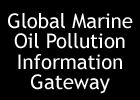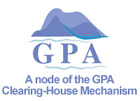 The effects of releases of oils (hydrocarbons) into the marine
and coastal environment has been an issue of environmental concern
for many decades. From originally being related mainly to pollution
from sea-based sources such as shipping and offshore (accidental
as well as operational discharges), the problem of oil pollution
of the marine environment has gradually grown to encompass a
very wide range of both land-based (coastal and inland) and
sea-based sources within most sectors of society.
The effects of releases of oils (hydrocarbons) into the marine
and coastal environment has been an issue of environmental concern
for many decades. From originally being related mainly to pollution
from sea-based sources such as shipping and offshore (accidental
as well as operational discharges), the problem of oil pollution
of the marine environment has gradually grown to encompass a
very wide range of both land-based (coastal and inland) and
sea-based sources within most sectors of society.
 The diversity of sources, and thus the complexity of the issue
of marine oil pollution, has been highlighted in many regions
around the world, and in several political and marine research
fora. Oil products are found everywhere in society and so
is the problem of hydrocarbons entering the aquatic environment.
Only recently, it is concluded in a study by the U.S. National
Research Council of the National Academy of Sciences that
the largest part, probably in the magnitude of 80 per cent,
of the petroleum that enters the marine environment worldwide
comes from land-based sources, many of them diffuse. In the
case of the marine waters around North America, the figure
of oils from land-based sources, including polluted river
runoff, has been estimated at 85 per cent of the total.
The diversity of sources, and thus the complexity of the issue
of marine oil pollution, has been highlighted in many regions
around the world, and in several political and marine research
fora. Oil products are found everywhere in society and so
is the problem of hydrocarbons entering the aquatic environment.
Only recently, it is concluded in a study by the U.S. National
Research Council of the National Academy of Sciences that
the largest part, probably in the magnitude of 80 per cent,
of the petroleum that enters the marine environment worldwide
comes from land-based sources, many of them diffuse. In the
case of the marine waters around North America, the figure
of oils from land-based sources, including polluted river
runoff, has been estimated at 85 per cent of the total.
 Consequently, in order to be able to effectively deal with
the multifaceted problem of marine oil pollution, these numerous
and widespread sources must be addressed in the political
framework as well as in practical action. The overall objective
of all initiatives and actions should be to prevent, reduce
and/or eliminate emissions and discharges from human activities
in order to prevent, reduce and eliminate pollution of the
marine environment caused by oils.
Consequently, in order to be able to effectively deal with
the multifaceted problem of marine oil pollution, these numerous
and widespread sources must be addressed in the political
framework as well as in practical action. The overall objective
of all initiatives and actions should be to prevent, reduce
and/or eliminate emissions and discharges from human activities
in order to prevent, reduce and eliminate pollution of the
marine environment caused by oils.
GLOBAL
ACTION AND ACTORS
Like
in many other cases, actions need to be taken at a number
of levels depending on the source to be addressed. Globally,
international action, e.g. within the UN International Maritime
Organisation (IMO), is needed to further control the operational
discharges and emissions of oil and waste, as well as air
pollutants, from shipping (MARPOL 73/78), and to reduce the
risks for major accidents (SOLAS). Measures should build on
the regulations set out in these and other existing conventions
with global coverage. Transboundary air pollution, e.g., VOCs
and PAHs from the handling and use of oil products, could
be further controlled at the global or regional level via
agreements such as the UN Framework Convention on Climate
Change, the UN ECE Convention on Long-range transport of air
pollution (Europe and North America), and others.
 Global
action: International agreements, conventions and
action plans of relevance to the issue of marine and coastal
oil pollution.
Global
action: International agreements, conventions and
action plans of relevance to the issue of marine and coastal
oil pollution.
 Global
actors: Intergovernmental and non-governmental (private
sector, environmental, etc.) organizations of relevance to
the issue of marine and coastal oil pollution.
Global
actors: Intergovernmental and non-governmental (private
sector, environmental, etc.) organizations of relevance to
the issue of marine and coastal oil pollution.
REGIONAL
ACTION AND ACTORS
Discharges
of hydrocarbons from offshore activities and land-based sources
should be addressed through co-operation at the regional or
national level. Regionally, these issues are best dealt with
within the framework of the UNEP Regional Seas and Partner
Seas Programmes and relevant annexes or protocols to the regional
agreements. The measures agreed on the regional level should,
however, also be put into a global context, e.g., as essential
components of the implementation of the Global Programme of
Action for the Prevention of Marine Pollution from Land-based
Activities (UNEP GPA). In this context it should be noted
that oils (hydrocarbons) is one of the pollutant source categories
included in the GPA.
 Regional action and
actors: Regional conventions, agreements and actors
of relevance to the issue of marine and coastal oil pollution,
presented for 21 regional sea areas around the world.
Regional action and
actors: Regional conventions, agreements and actors
of relevance to the issue of marine and coastal oil pollution,
presented for 21 regional sea areas around the world.
NATIONAL
ACTION AND ACTORS
However,
decisions taken at international and regional level must,
to be fully effective, be backed by solid efforts at the national
level. Nationally, states are to implement the commitments
made internationally, and also supplement these with country-specific
actions to address national priority issues as appropriate.
This might best be done through the development of comprehensive
national programmes, as envisaged in the GPA, for the reduction
and/or elimination of priority emissions and discharges from
antrophogenic sources. National action will have to be taken
at several levels, from nation-wide measures to measures at
municipality level. To bring about changes of attitude in
society regarding the way we handle oil products in our everyday
lives is also of utmost importance.
National
programmes could include such components as targets, timetables,
and sector-specific measures (according to the precautionary
principle and the principles of best available techniques
(BAT), best environmental practice (BEP), and integrated pollution
prevention and control (IPPC), as well as fiscal and economic
incentives and measures, including voluntary agreements, to
encourage reductions in emissions and discharges of oils,
to encouragement to recycle used lubricating oils, and to
encourage fuel-use efficiencies. Programmes could also comprise
the provision of reception and recycling facilities for oily
wastes, the development of plans and measures to prevent accidental
releases of oils, particularly from coastal refineries, storage
facilities and waste reception facilities and of capacities
to respond to such accidents, the establishment of cleaner
production programmes in cooperation with industry, and means
to ensure the effective implementation of the programme of
action.
 National action:
Examples of national action in the some of the 21 regional
sea areas.
National action:
Examples of national action in the some of the 21 regional
sea areas.
|



